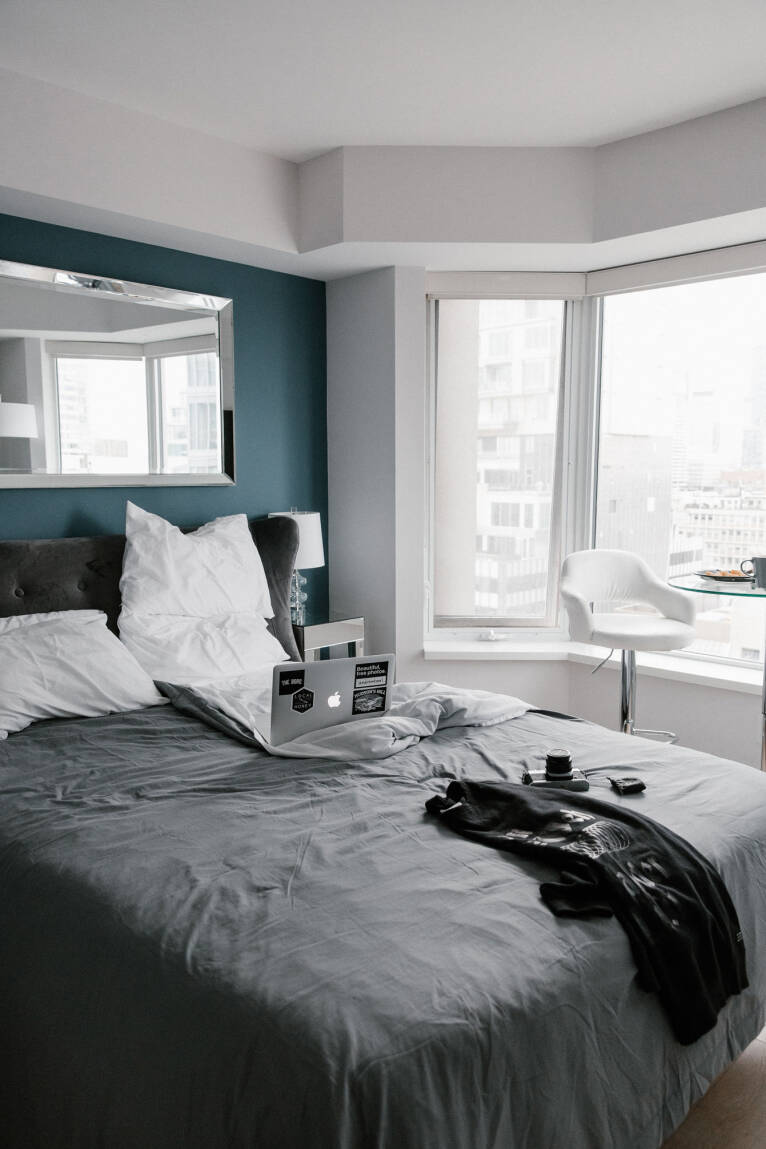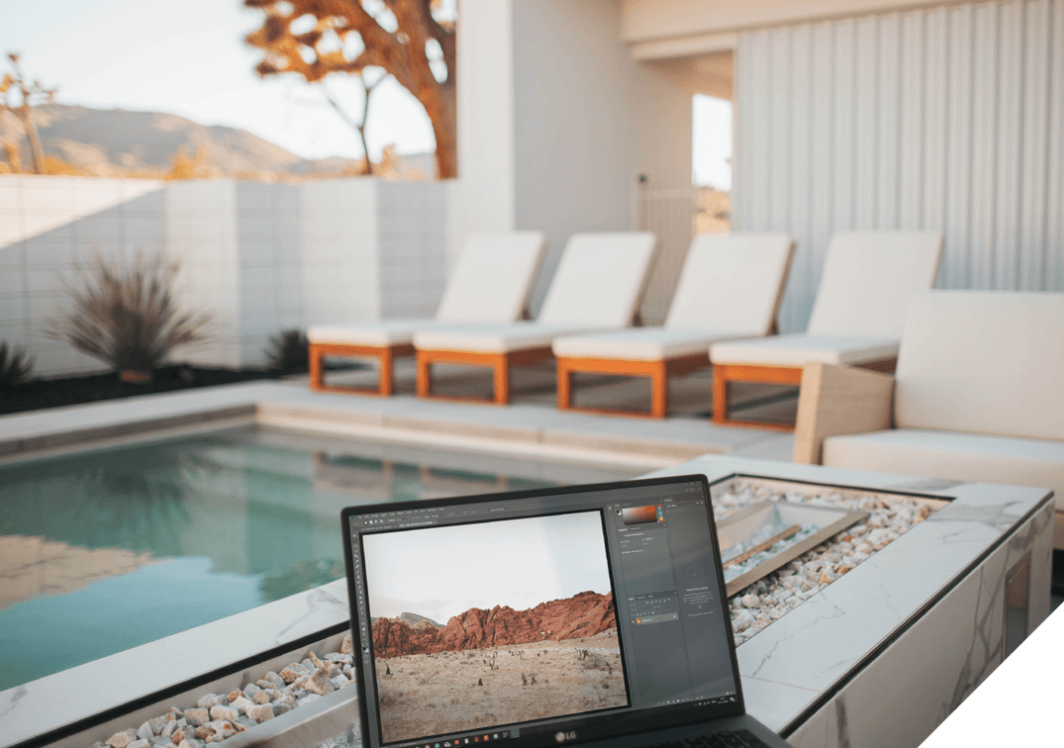TRENDWATCH
HOTELS NAVIGATING TOWARDS NEW NORMAL
Working holiday
After lockdown restrictions were eased in some locations bit by bit, the first hotel campaigns mostly focused on hygiene and safety. Because business travel had stopped almost completely, campaigns started shifting towards the desires of people missing getting out of the house. Instead of promoting restaurants or museums, hotels are now promoting nearby parks, scenery and simple outdoor activities that are easy to do while maintaining social distance, playing in on the desire of people seeking change in their scenery after months at home. Some hotels have even taken matters into their own hands by creating drive-in movie nights or even pop-up ‘bodegas’.
3 min
Hotels
navigating
towards new
normal
Long-term and short-term opportunities
for the future of the travel industry
Lisa Appels Wouter Noordijk
Six months after the WHO declared the COVID-19 virus as a global pandemic, the traveling and hotel industry has been hit hard by its consequences. The hospitality industry is trying to figure out how to navigate through these difficult times and how to create a ‘new normal’. Social distancing, hygiene and refund policies may be the new game changers, but some hotels have been thinking outside of the box to keep themselves and business busy, as they try to look into the future.
Hotel rooms turned into medical areas
In Abu Dhabi during April, over a 1000 hotel rooms were donated to healthcare workers through the ‘Together we are Good’ programme that helped to accommodate doctors, nurses, medical professionals and frontline support staff. The rooms could be used by healthcare professionals who were on standby for urgent cases or as a place to self-isolate away from their families. On other sides of the world, other hotels – including the iconic Four Seasons New York and Claridge’s in London – also turned their rooms into homes for medical staff.
Residency for creatives
As months went on, besides medical professionals and patients suffering from the virus, a lot of other livelihoods were being affected by COVID-19, the effects of the virus spreading through all layers of society. The Sofitel Legend the Grand Hotel in Amsterdam decided to help out creatives during lockdown, by offering them residency for a week. Instead of isolating in their homes, artists were welcomed to the suite of the five star hotel. The hotel wanted to offer them an opportunity to relax but also to regain new inspiration in different areas of the hotel, for example on the rooftop and in the old library. The hotel also aims to offer the artists in residence a platform by bringing them and their creations together, once the program is finished.
Selling branded products
The Historic Smithton Inn, a small lodge in Lancaster County, Pennsylvania, took their chances when the state closed its liquor stores. The hotel already had a wine bar and with the help of a loan for small businesses they were able to create e-commerce sites within hours of hearing that liquor stores were closed. Their new online store didn't just sell wine but also offered branded sheets, candles and soaps, figuring people may want a piece of the vacation they could no longer take.
But staycations aren’t the only lifeline for the industry in the foreseeable future. The new norm of working from home also offers chances. For many, the dividing lines between work, private life and leisure are being blurred, creating challenges. That’s why some players in the traveling industry are introducing the concept workation. The multinational travel and tourism company TUI is promoting working at a holiday location. Their message: Why not enjoy yourself during your spare time by taking a refreshing dip before logging into your laptop? Why not celebrate the end of a productive working week with a drink on the beach? In addition, they claim a new environment is also good for enhancing creativity and job satisfaction. As business travel and events may never return to pre-pandemic levels, adapting to workation and staycation concepts might be the way to survive for the hotel industry.
online store
offered branded
sheets candles and
soaps figuring
people may want
a piece of the
vacation they could
no longer take”
celebrate the
end of a productive
working week
with a drink on
the beach?”
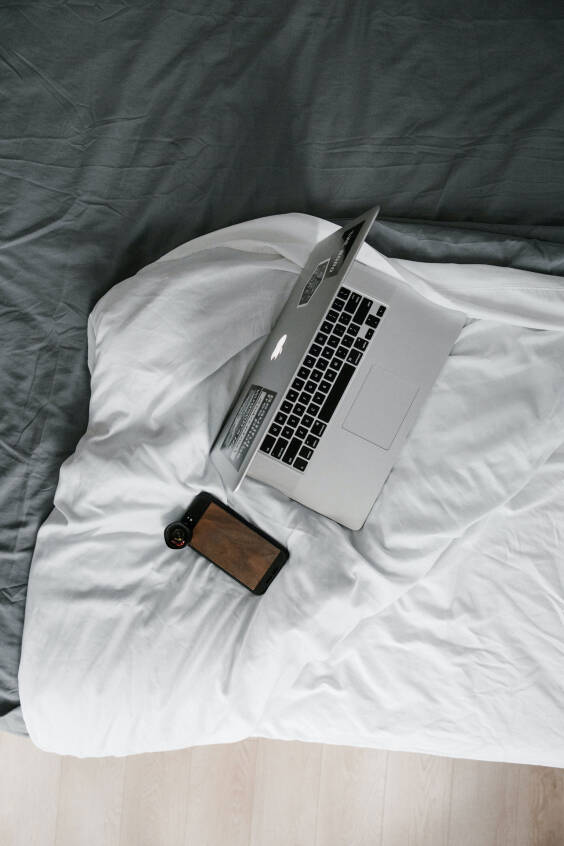






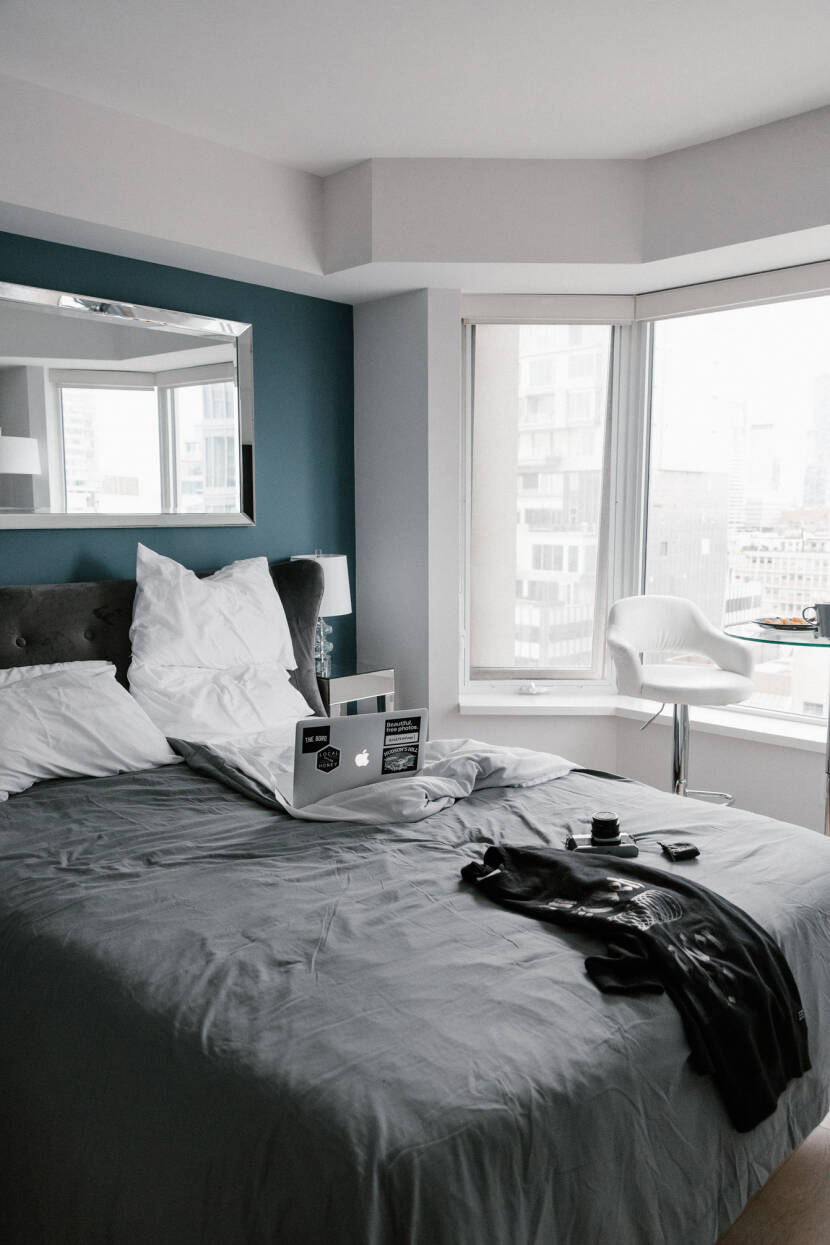
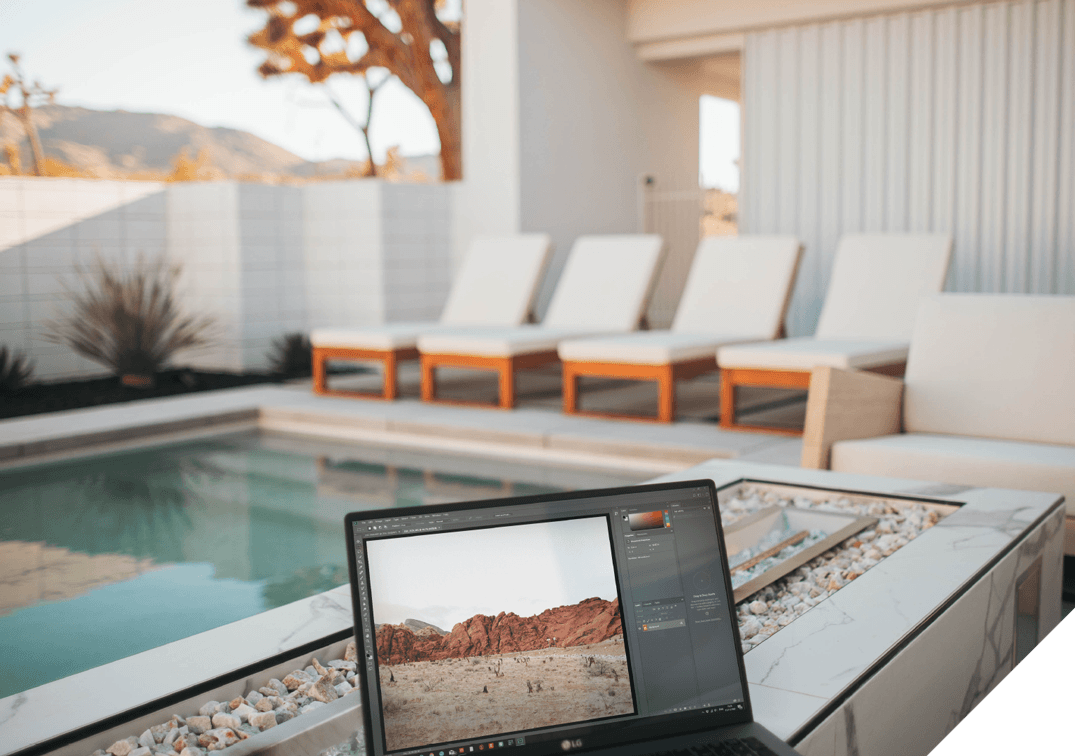
Lisa Appels Wouter Noordijk
Working holiday
After lockdown restrictions were eased in some locations bit by bit, the first hotel campaigns mostly focused on hygiene and safety. Because business travel had stopped almost completely, campaigns started shifting towards the desires of people missing getting out of the house. Instead of promoting restaurants or museums, hotels are now promoting nearby parks, scenery and simple outdoor activities that are easy to do while maintaining social distance, playing in on the desire of people seeking change in their scenery after months at home. Some hotels have even taken matters into their own hands by creating drive-in movie nights or even pop-up ‘bodegas’.
3 min
But staycations aren’t the only lifeline for the industry in the foreseeable future. The new norm of working from home also offers chances. For many, the dividing lines between work, private life and leisure are being blurred, creating challenges. That’s why some players in the traveling industry are introducing the concept workation. The multinational travel and tourism company TUI is promoting working at a holiday location. Their message: Why not enjoy yourself during your spare time by taking a refreshing dip before logging into your laptop? Why not celebrate the end of a productive working week with a drink on the beach? In addition, they claim a new environment is also good for enhancing creativity and job satisfaction. As business travel and events may never return to pre-pandemic levels, adapting to workation and staycation concepts might be the way to survive for the hotel industry.
the end of a productive
working week with a
drink on the beach?”
Selling branded products
The Historic Smithton Inn, a small lodge in Lancaster County, Pennsylvania, took their chances when the state closed its liquor stores. The hotel already had a wine bar and with the help of a loan for small businesses they were able to create e-commerce sites within hours of hearing that liquor stores were closed. Their new online store didn't just sell wine but also offered branded sheets, candles and soaps, figuring people may want a piece of the vacation they could no longer take.

Residency for creatives
As months went on, besides medical professionals and patients suffering from the virus, a lot of other livelihoods were being affected by COVID-19, the effects of the virus spreading through all layers of society. The Sofitel Legend the Grand Hotel in Amsterdam decided to help out creatives during lockdown, by offering them residency for a week. Instead of isolating in their homes, artists were welcomed to the suite of the five star hotel. The hotel wanted to offer them an opportunity to relax but also to regain new inspiration in different areas of the hotel, for example on the rooftop and in the old library. The hotel also aims to offer the artists in residence a platform by bringing them and their creations together, once the program is finished.
Hotel rooms turned into medical areas
In Abu Dhabi during April, over a 1000 hotel rooms were donated to healthcare workers through the ‘Together we are Good’ programme that helped to accommodate doctors, nurses, medical professionals and frontline support staff. The rooms could be used by healthcare professionals who were on standby for urgent cases or as a place to self-isolate away from their families. On other sides of the world, other hotels – including the iconic Four Seasons New York and Claridge’s in London – also turned their rooms into homes for medical staff.
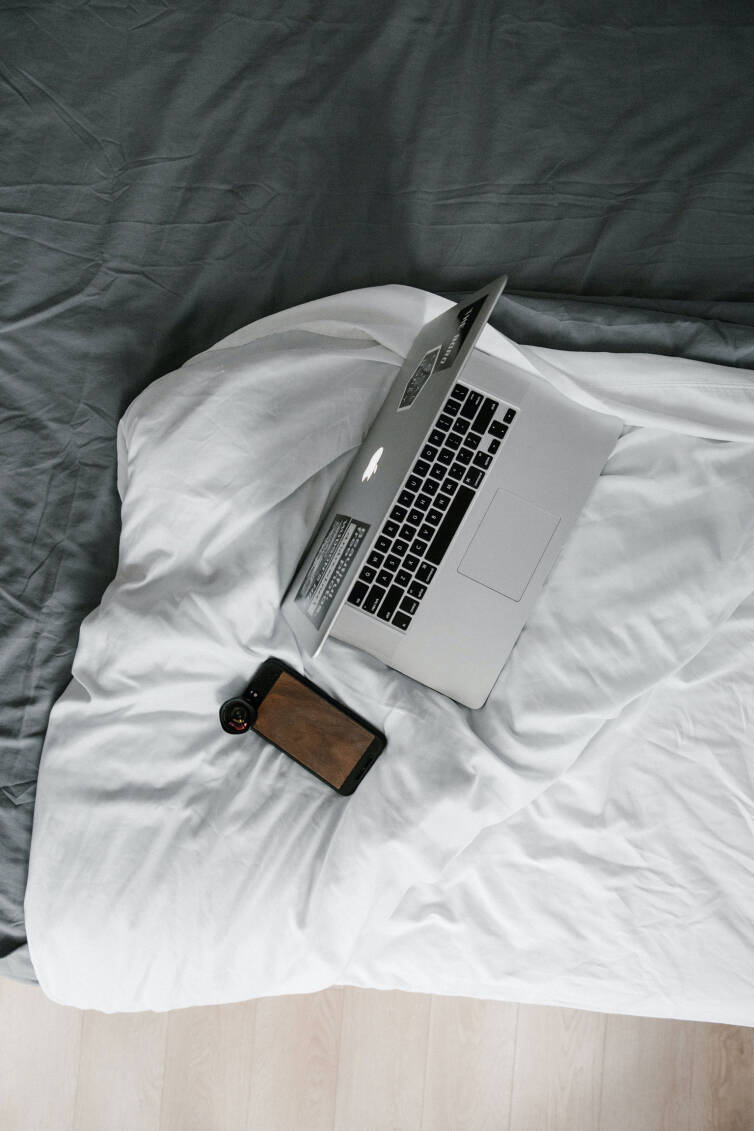
Facilitating in peoples new needswith staycation and workation concepts
Hotels navigating
towards new normal
Six months after the WHO declared the COVID-19 virus as a global pandemic, the traveling and hotel industry has been hit hard by its consequences. The hospitality industry is trying to figure out how to navigate through these difficult times and how to create a ‘new normal’. Social distancing, hygiene and refund policies may be the new game changers, but some hotels have been thinking outside of the box to keep themselves and business busy, as they try to look into the future.





